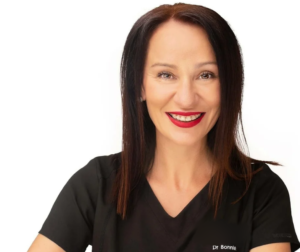Géniale Women’s Health Clinic
At the Géniale Women’s Health Clinic, Dr Bonnie Dinkovski provides a range of services dedicated to women’s health and is devoted to addressing the wellbeing of her patients holistically.

At the Géniale Women’s Health Clinic, Dr Bonnie Dinkovski provides a range of services dedicated to women’s health and is devoted to addressing the wellbeing of her patients holistically.
Dr Bonnie provides treatments in all areas of women’s health including
"*" indicates required fields

With more than 25 years of experience as a Medical Doctor, Dr. Bonnie possesses an extensive understanding of the latest treatments, focusing on Women’s Health and Aesthetic Medicine.
BOOK ONLINE: Consultation Booking
PHONE: (02) 9100 0820
EMAIL: info@geniale.com.au